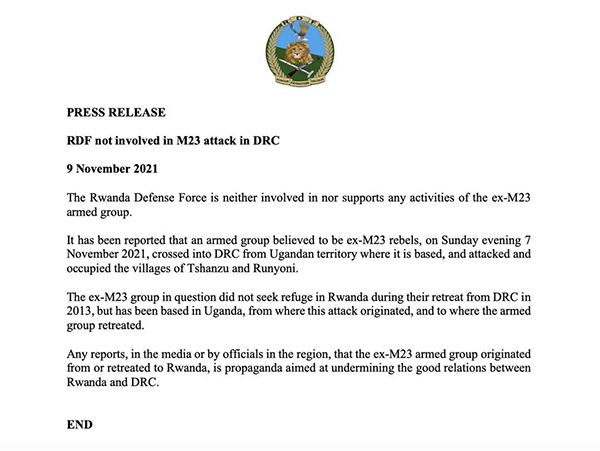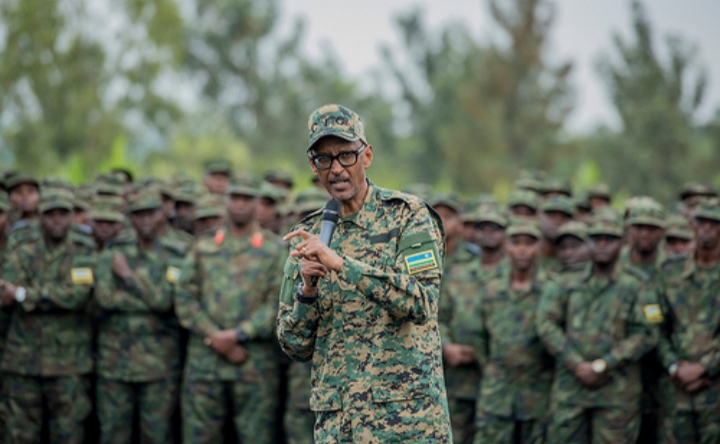Rwanda Defense Force says that M-23 rebels originated from Uganda and not its territory.
In a press release November 9, Rwanda says any reports in the media or by officials in the region, that the ex M-23 armed group originated from or retreated to Rwanda, is propaganda aimed at undermining its ‘good relations’ with DRC.
“The Rwanda Defense Force is neither involved in nor supports activities of the ex M-23 armed group. It has been reported that an armed group believed to be ex M-23 rebels, on Sunday evening 7 November , crossed into DRC from Uganda territory where it is based and attacked and occupied The villages of Tshanza and Runyongi”, part of the statement reads.
Rwanda further claims this group did not seek refuge in Rwanda during their retreat from DRC in 2013 but have been based in Uganda.

Meanwhile, the DRC army says the M23 attacked the military positions of Chanzu and Runyonyi, in North Kivu province, “with the intention of carrying out destabilizing actions and elsewhere in the province,” the FARDC Chief of Staff Celestin Mbala Munsense said in a statement, adding that the fighting is still ongoing.
“The FARDC is determined to put an end once and for all to this armed group, which must be neutralized definitively,” he said.
Yet Bertrand Bisimwa, M23’s president, denied that his men had launched such attack in the region.
Though admitting M23’s presence since 2017, Bisimwa claimed that his soldiers have avoided initiating “useless war” and that the M23 is “waiting impatiently the sincerity” of the DRC president Felix Tshisekedi to implement the outcomes reached by M23 and DRC’s government during the peace talks for more than a year.
“However, we require that uncontrolled elements deployed in different government army positions in Rutshuru territory to put an end to the provocative acts they engage in malignantly,” said Bisimwa.
According to Mbala Munsense, the resurgence of the M23 rebellion came at a time when DRC “is engaging with neighboring countries for the normalization of relations in order to improve the security situation in the sub-region for lasting peace and harmonious development of our countries”.
Several FARDC’s military positions in the region “have been attacked on the night from Sunday to Monday in a strategic area located on the border between the DRC and Uganda,” confirmed Patrick Muyaya, spokesman for the DRC government.
The latest attack came amid mounting violence in the provinces of North Kivu and Ituri, where armed groups such as the Allied Democratic Forces (ADF) have been active.
Several villages in the area are now empty as their inhabitants, including women and children, have crossed the border into Uganda for fear of the rebels’ advance in the region.





